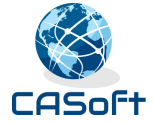About Scrum we like the philosophy and the following practices:
- Feature prioritisation sessions
- Undisturbed iterations (called Sprints)
- Functionality presentation sessions
- Self-organising teams
In a nutshell, SCRUM principles are as follows:
- All management responsibilities are divided between 3 Scrum roles:
- The Product Owner focus is focused on Return On Investment (ROI)
- The Team is responsible for developing functionality. Teams are self-managing, self-organising, cross-functional and they are responsible for figuring out how to turn Product Backlog into an increment of functionality.
- The Scrum Master fills the position normally occupied by the Project Manager. He is responsible for the Scrum process. Like a sheep-dog, he’s responsible for keeping the flock together (focused) and keeping the wolves away (undistracted).
- Each Sprint is an iteration of 30 consecutive calendar days
- A Sprint starts with a planning meeting, where the Product Owner presents the highest priority Product Backlog (4 hours) and the Team plans out the Sprint (another 4 hours).
- A Sprint finishes with a Sprint review meeting (4 hours), where the team present what was developed. Then the Scrum Master holds a Scrum retrospective meeting with the team.
- Artefacts:
- A Product Backlog lists the features with estimates, associated Sprint and remaining work (days) – maintained by the Product Owner
- A Sprint Backlog lists the tasks, which the team defines for turning the Product Backlog they selected into an increment of functionality, associated with the Originator, the person Responsible, the Status and the hours of work remaining – maintained by the Scrum Master -No Gantt-chart
- Rules:
- A fairly complete set of rules can be found here: http://www.agileadvice.com/archives/2007/05/scrum_rules.html
For more information, get the book form Ken Schwaber – Agile project Management with Scrum – click on the image below:
 CASoft Blog
CASoft Blog

 18 Lessons are listed and thoughly documented, using examples from reknown Hollywood projects.
18 Lessons are listed and thoughly documented, using examples from reknown Hollywood projects.
